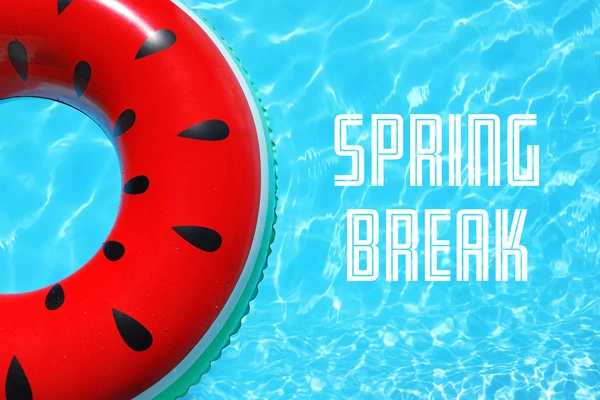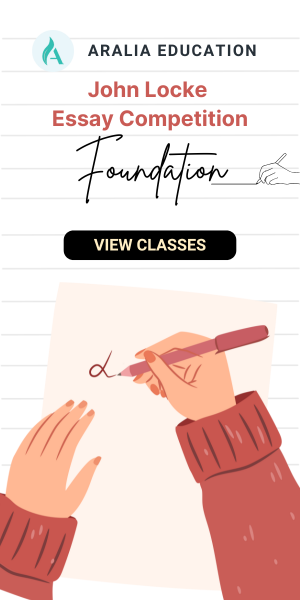1. Why should you pursue independent scientific research?
As a high school student, pursuing independent research is an invaluable opportunity to gain deeper knowledge and understanding in a field you’re passionate about. It’s also a great way to develop important skills such as critical thinking, problem-solving, data analysis, and communication – all of which are highly sought after by university admissions boards, employers, and more. Independent research is also the perfect opportunity to make connections with professionals who can offer guidance and advice. By undertaking a research project on your own, not only will you be able to explore a personal area of interest in more depth, but you will also demonstrate your dedication to pursuing knowledge for the sake of learning, and your ability to work independently over a prolonged period.
Beyond the benefits of skill development and impressive additions to college applications or job resumes, independent scientific research provides a unique opportunity for students to pursue topics they feel passionate about. It’s the chance to push your boundaries, take risks, express creativity, and be excited by what you learn. The vast array of research topics allows you to test different ideas and explore new avenues — all while advancing your overall education. All around, there’s no better way to challenge yourself than through independent research!
2. Find the field and topic that you’re interested in researching
Before thinking about the logistics and the complexity of the scientific research, you should always narrow down the field you’re interested in researching. When we mention scientific research, it is not limited to natural sciences such as biology, physics, chemistry, etc., but also social science such as psychology, sociology, education, etc. Below are some examples of fields to help you brainstorm and choose couples of fields you’re interested in:
- Anthropology (Archeological Anthropology, Social Anthropology, Cultural Anthropology, Linguistic Anthropology, etc.)
- Astronomy
- Biology (Zoology, Microbiology, Genetics, Ecology, Botany etc.)
- Chemistry (Biochemistry, Organic Chemistry, Inorganic Chemistry, etc.)
- Earth Science (Geology, Geography, Geophysics, Geochemistry, Climatology, Glaciology, Hydrology, Meteorology, Oceanography, etc.)
- Economics (Finance, Marketing, Macroeconomics, Microeconomics, etc.)
- Engineering (Electrical Engineering, Chemical Engineering, Computer Engineering, Aerospace Engineering, etc.)
- Mathematics
- Physics (Astrophysics, Geophysics, Biophysics, etc.)
- Sociology
- Psychology
After you have decided on one or two fields of study that you want to pursue further, it’s time to narrow down potential topics. One deciding factor in picking your topic is whether you want to conduct independent research or participate in a research project with predefined research questions. According to the article 8 Steps in the Research Process, topics can be inspired by problems that you find in your daily life and you want to discover potential solutions for. Other sources for research questions can come from informational content that you read, watch, or listen to. It can be inspired by anything from the newspaper you read, to Youtube videos you watch!
3. How do you want to conduct research?
As we discussed above, how you conduct research really depends on whether you choose to do independent research at school, participate in a research program, or join an existing project.
If you’re conducting independent research at school or joining an existing project
In this case, you should reach out to an academic advisor to see if your school offers independent scientific research or independent study classes. For example, Philip Andover Academy offers seniors the opportunity to join the Abbot Independent Scholars Program, where students work with a faculty mentor on a selected project.
High school students have the option to combine research with academic offerings such as an AP Seminar and AP Research. Upon completion of these classes and earning a score of 3 or higher on each respective AP Exam, students will receive the AP Seminar and Research Certificate. The AP Seminar is an introductory course to research within the AP Capstone Diploma Program, providing students with information analysis and evaluation skills and the ability to create compelling, evidence-based arguments. It is a yearlong course that teaches students how to investigate real-world issues by synthesizing information from different sources, developing persuasive arguments, and designing and delivering oral and visual presentations both independently and as part of a team. The end goal of the AP Seminar is to equip students with information analysis and evaluation skills, as well as compelling, evidence-based argument creation. AP Research is a continuation of the AP Seminar, which normally starts in May – from the end of the AP Seminar course. With a solid foundation of research and problem solving, students conduct a yearlong research project addressing a specific research question. By the end of the year, students will also have produced a 5000-word research paper and a 15-20 minute oral defense.
If your school doesn’t offer AP Seminar and AP Research, you can explore the option of independent study through collaborating with teachers or the International Baccalaureate program. Based on the specific research topics that interest you, there are likely teachers in your school who could help guide and structure your research. Be sure to communicate clearly with teachers and advisors about the topics you would like to further explore. If your school offers an International Baccalaureate program, you will have the opportunity to conduct independent research through science courses and Extended Essay. Extended Essay allows you to address a research question in your area of interest and write a thesis paper with the support of an academic advisor.
For students whose schools do not offer any independent study program, they can reach out to teachers at their high school separately, or to professors at local colleges. Before making contact, it is important to read about the professor’s research interests on the school website. Then, they can send an email expressing their interest, mentioning why they are interested in their work, and asking if the teacher/professor can be a mentor or have space in their lab.
Sample email to send to professors
Subject: High school student interested in conducting scientific research
Dear Professor A,
My name is Adam Smith, a rising senior at ABC High school, and I’m interested in participating in (put the name of a particular research program or your proposed independent research here!). With my passion for computer science, I want to receive more hands-on experience by conducting research involving computer algorithms. Throughout high school, I’ve taken challenging courses and received As in AP Computer Science Principles, AP Calculus, and Advanced Statistics. In addition, I’m currently the president of my school’s Computer Science club, where I delegate 4 E-board members and organize speaker events. We also participated in various local and regional computer science competitions. After those experiences, I hope to enhance my knowledge of algorithms and conduct research in the field. I found your current research on algorithms inspiring, and I would love the opportunity to learn more and help you with your research, or receive some guidance in conducting my own.
Are you available anytime this week for a quick discussion call? I’m available any day after 3 PM.
Thank you for your consideration!
Adam Smith
If you want to participate in a research program in the summer
Students can participate in a lab part-time during the school year, or full-time in the summer through a summer scientific research program. There are many summer programs that allow you to dedicate your time to working independently or collaborating with other students over the summer. At the end of the summer, you will have the opportunity to present your work in front of researchers. We have listed 18 outstanding summer research programs that students can participate in during the summer for scientific research, they are:
Tufts Summer Research Experience
Description: Tufts Summer Research Experience allows students to learn about research methods, laboratory techniques, data collection, and analysis under active mentorship by Tufts’ world-class researchers and their teams. A full list of lab programs can be accessed HERE.
Smith College Summer Science and Engineering Program
Description: The Smith Summer Science and Engineering Program (SSEP) is designed for exceptional young women with strong science and engineering interests. You will engage in hands-on research with the Smith faculty in life and physical sciences and engineering. The program accepts young women entering grades 9, 10, 11, and 12 in Fall 2023.
Johns Hopkins Engineering Innovation
Description: Explore Engineering Innovation (EEI) is an exciting, college-level, summer program for motivated high school students with an aptitude in math and science and an interest in (or curiosity about) engineering. Students complete hands-on projects in a variety of engineering disciplines and learn to think and problem-solve like engineers.
The University of Chicago – Researching the Biological Sciences (RIBS) (canceled for 2021 due to the pandemic)
Description: This four-week intensive summer research program for high school students is designed to expose students to a broad range of molecular, microbiological, and cellular biological techniques currently used in research laboratories. Within the session, students will be immersed in the research experience, giving them a taste of life on the bench.
NIH Summer Internship Program in Biomedical Research
High school students are invited to spend a summer working at the NIH with leading scientists in the biomedical research field. The NIH has more than 1150 laboratories/research projects located on the main campus in Bethesda, MD, and in the surrounding area as well as in Baltimore and Frederick, MD; Research Triangle Park, NC; Hamilton, MT; Framingham, MA; Phoenix, AZ; and Detroit, MI.
Besides the programs we mentioned, Aralia also provides various scientific research programs in science and other related disciplines, such as economics, psychology, and international relations research. Check out our Upcoming Classes to view our latest schedule.
4. Step-by-step guide on the research process
In this article, we will briefly go through each step. However, if you want to see a more detailed explanation, please refer to the article 8 steps in the research process.
- Identify your question and develop your topic
- Find background information
- Evaluate what you find
- Define Population and Collect Data
- Data Analysis
- Cite what you find using the requested format
- Proofread
5. Where do you submit your research?
If you conduct independent scientific research with a mentor or teachers at school, upon completion of the scientific research, you can submit your work to various research journals for publishing. We compiled a list of 12 research journals that you can choose from, some examples are:
- (JEI) Journal of Emerging Investigators: The Journal of Emerging Investigators is an open-access science journal and mentorship program publishing research by middle and high school scientists. JEI is a non-profit organization operated by graduate students, postdoctoral fellows, and professors across the United States. Graduate students contribute to the editorial and review process, and management of an academic journal. Since 2012, JEI has published over 250 papers by pre-college students. A sample research paper conducted by students “A simple printing solution to aid deficit reduction” was covered in CNN and the Atlantic.
- Columbia Junior Science Journal: The Columbia Junior Science Journal is a high school research journal for high school students with an interest in natural sciences, physical sciences, engineering, and social sciences. CJSJ started from Columbia Undergraduate Science Journal, a professional-level science journal for scholars. The CJSJ is managed by the editorial team of the Columbia Undergraduate Science Journal.
- Journal of Student Research: Journal of Student Research (JSR) is an Academic, Multidisciplinary, and Faculty-reviewed Journal (Houston, Texas) devoted to the rapid dissemination of current research published by high school, undergraduate, and graduate students. The journal accepts AP, IB, Honors Research Articles, Review Articles, Research Projects, Research Posters, etc. The journal has had over 2,000 published student authors from high schools and universities worldwide.
Doing research in high school can be a great opportunity to gain experience and get ahead in your education. Whether you choose to pursue an independent study program, contact a professor at a local college, or reach out to teachers at your high school, there are plenty of opportunities for you to explore the topics that interest you. So, don’t hesitate to start exploring your research interests now!










